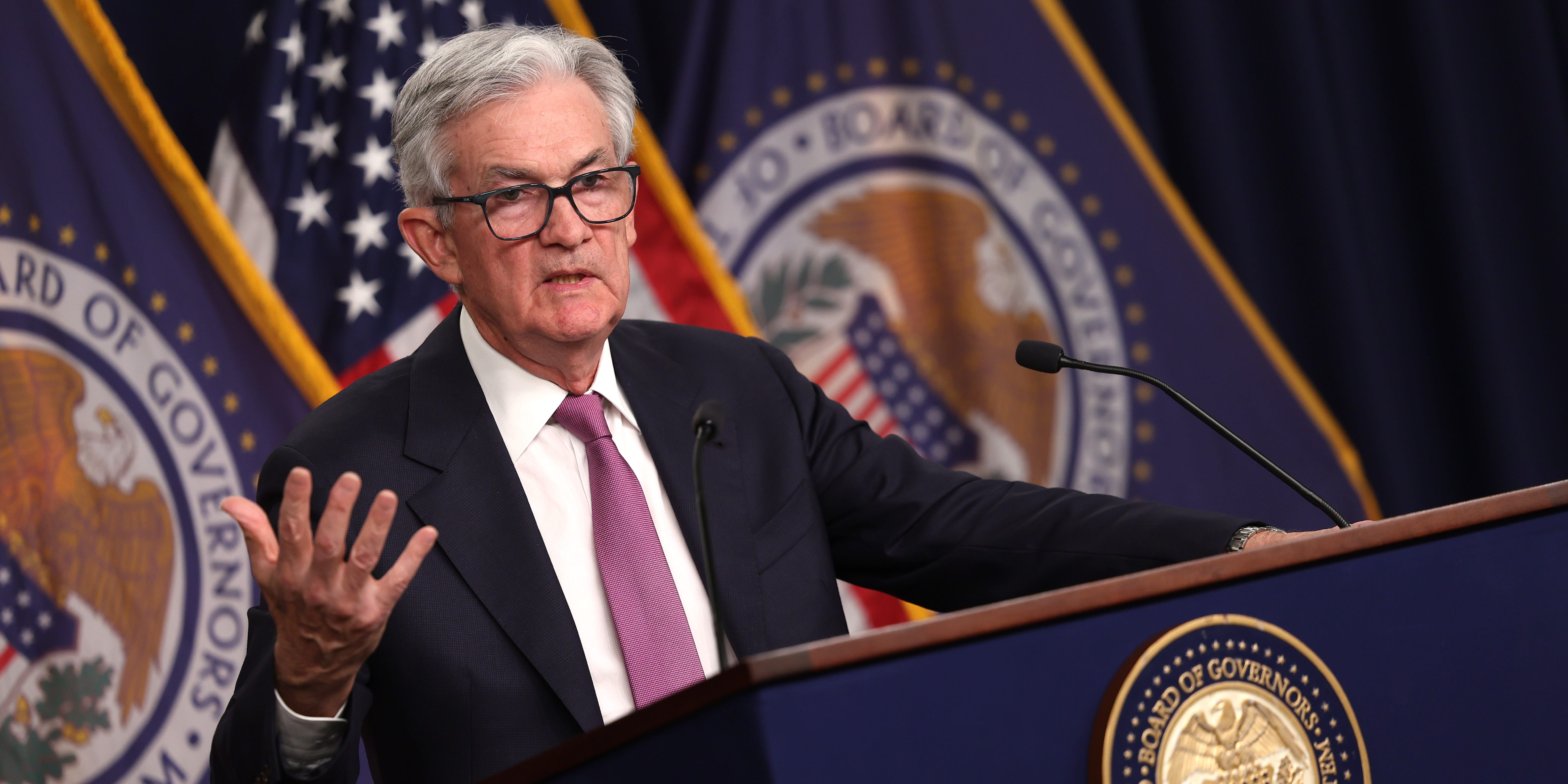Investors need to realize the Federal Reserve won’t cut interest rates this year, Jupiter strategist Mark Nash says. Most traders expect the central bank to pause its tightening campaign at its June meeting. But “policy is still not tight enough,” Nash told Bloomberg. Loading Something is loading.
Thanks for signing up!
Access your favorite topics in a personalized feed while you’re on the go.
The Federal Reserve won’t cut interest rates later this year – and might raise them higher in the coming months, a top-performing strategist has claimed.
Jupiter Asset Management’s Mark Nash told Bloomberg this week that the central bank will need to raise borrowing costs further in order to reduce inflation from just under 5% in April to its 2% target.
“It’s very clear that we need higher real rates in order to get inflation down and the Fed will not stop until that happens,” he said. “Policy is still not tight enough.”
The bond fund overseen by Nash has beaten 91% of its peers over the past five years, according to Bloomberg data.
Nash added that he’s shorting 2-year US Treasury notes – which tend to be highly sensitive to interest rates – in order to bet against investors’ Fed optimism.
Just under 70% of traders believe the US central bank will pause its rate-hiking campaign in June, according to CME Group’s FedWatch tool, as the inflation rate has almost halved since last spring.
Federal Open Market Committee minutes released Wednesday suggested that policymakers are leaning towards a pause next month – but some favor further tightening.
Nash told Bloomberg that he’s confident there’ll be further rate hikes, and no cuts later this year, because central bankers know that they have to trigger an economic slowdown in order to stabilize soaring prices.
“The Fed has to cause some damage to the economy,” he said. “If they don’t cause some damage, and inflation comes down a bit, real incomes will just go back up and consumers will feel better as the cost-of-living crisis ends.”
“We’ll spend more money and inflation will just go up again,” he added. “So they have to create pain.”
Read more: US stocks fall as debt ceiling debate drags on and minutes show Fed split on more rate hikes
